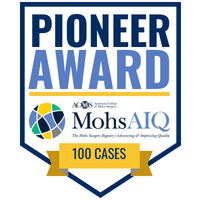
Presenting as malignant growths of the skin, the majority of skin cancers are classified as basal cell carcinomas or squamous cell carcinomas, though other forms include melanoma, Merkel cell carcinoma, atypical fibroxanthoma, cutaneous lymphoma and dermatofibrosarcoma. Within the context of basal and squamous cell carcinomas, however, there are superficial types and more invasive types, some of which are complex to treat. Thus, while they may be considered “common,” this doesn’t mean that all varieties of skin cancers are treated in the same way, even if their biologic behaviors prove similar. To gain a general understanding of skin cancer types and treatment, continue reading below.
In regards to basal cell carcinomas and squamous cell carcinomas, MedicineNet reports that both forms could appear as sores that bleed, ooze, crust or otherwise will not heal. In turn, both may have raised edges. Yet, there are a few differences to note. Basal cell carcinomas resemble a shiny pink, red, pearly or translucent bump. While these lesions may consist of raised edges with a crusted center, they are not usually painful, though they may itch. Squamous cell carcinomas, though less prevalent, are more persistent. As open sores that sometimes take on a wart-like appearance, these growths produce pain, are easy to bleed and have irregular borders.
Because of the unique characteristics of skin cancers, including their size, location and the health of the patient, there are a number of treatments and therapies. Topical medication such as Aldara proves to stimulate the body’s immune system, resulting in the production of interferon to attack cancer cells. In some cases, electrodessication and curettage (EDC) is performed using a local anesthetic and a curette to scrape and remove cancerous lesions. Mohs micrographic surgery is provided in other instances to remove visible portions of a skin cancer growth, while tissue is evaluated immediately to determine if margins are clear. This advanced type of surgery dramatically increases the ease and comfort of an individual’s recovery.
Dedicated and Experienced Specialist in the Diagnosis and Treatment of Skin Cancer
Patients in Marietta and surrounding communities look to Dr. Kayal at Kayal Dermatology & Skin Cancer Specialists for the diagnosis and treatment of skin cancer. As an expert in his field, Dr. Kayal is highly regarded for his precision and skill in removing cancerous lesions and growths. Yet, he is also a college-certified Mohs specialist, making him a trusted surgeon for even the most complex cases.
To schedule an appointment with Dr. Kayal, contact his office on Lacy Street today.
Posted on behalf of
141 Lacy Street, Suite 200
Marietta, GA 30060
Phone: (770) 426-7177
FAX: (770) 426-7745
Email: kayaldermatology@gmail.com
Mon-Fri: 7:30 am – 5:00 pm







